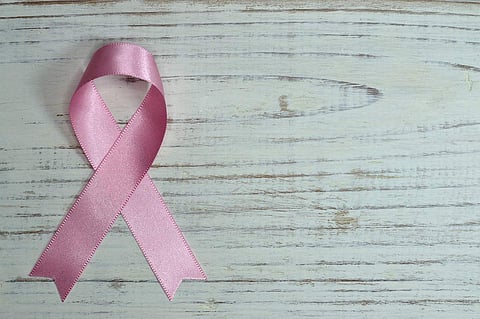

NEW DELHI: India has introduced HPV vaccination to target cervical cancer at the sub-national level in Sikkim and is planning to increase the scope of the vaccination in other states, the WHO said Friday.
Marking the third year of the cervical cancer elimination effort, Dr Poonam Khetrapal Singh, WHO Regional Director for Southeast Asia, said the global strategy for elimination was launched by the World Health Organization (WHO) in November 2020.
“Since the launch of the global strategy, member states have demonstrated commendable political will, exemplified by the formulation and launch of elimination strategies at the national level,” she said.
She said while six member states of the region have introduced the Human Papilloma Virus (HPV) vaccine nationwide -- Bhutan, Indonesia, Maldives, Myanmar, Sri Lanka and Thailand -- two member states (India in Sikkim and Bangladesh in Dhaka Division) have introduced it at the sub-national level.
She said that India has plans to increase the scope of the HPV vaccination by expanding its use to additional states.
Dr Singh said that Nepal and Timor-Leste plan to introduce the vaccine in 2023-24.
Quoting the Global Cancer Observatory 2020, she said that the South East Asia Region (SEARO) accounted for a substantial portion of the global cervical cancer burden, with 2,00,000 new cases -- 32% of the worldwide burden -- and 1,00,000 deaths (34% of global fatalities).
Cervical cancer is a preventable and curable disease if detected early and treated adequately.
It is the second most common cancer in India. According to estimates, cervical cancer contributes to approximately 6-29% of all cancers in women.
Dr Singh said the region has been able to meet the interim targets, which include 90% of girls in the region being fully vaccinated with the HPV vaccine by age 15; 70% of women have undergone high-performance testing by age 35, with a repeat screening by age 45; 90% of women with precancerous conditions received timely treatment, and 90% of women diagnosed with invasive cancer were able to manage it effectively.
“Member states have made remarkable progress in preventing, screening and managing cervical cancer. Under the Flagship Priority of 'Prevention and control of noncommunicable diseases through multisectoral policies and plans, with a focus on best buys', cervical cancer prevention is one of the best buys,” she said.
She also said that over the past three years, the Southeast Asia Region has achieved several milestones in the elimination roadmap, marked by developing and implementing strategic frameworks.
This includes a comprehensive plan for cervical cancer elimination as a public health problem covering the period 2021-2030.
“The SEA Region is among the pioneers in creating an implementation framework aligned with the global strategy for eliminating cervical cancer. On screening, ten out of 11 member states reported national population-based screening programs, with nine providing early detection services at the primary health care level. Progress has been made in adopting HPV DNA screening, with Bhutan and Thailand leading in its utilisation,” she said.
However, achieving the 70% target by 2030 requires sustained efforts.
“However, a positive development is that screening has been included in essential service packages or UHC packages in several member states,” Dr Singh said.
“Primary health care and community-based palliative care is expanding in the region, with exemplary initiatives in Bhutan, India, and Sri Lanka,” she said.
To accelerate the scaling up of treatment services for invasive cancers, SEARO has established the South-East Asia Cancer Grid (SEACanGrid), which facilitates leveraging the strengths of one institution in building the capacity of another across countries.
Ensuring all women have access to affordable and effective cervical cancer prevention and management services remains a priority.
Despite setbacks caused by the Covid-19 pandemic, efforts to resume and strengthen HPV vaccination and cervical cancer screening programs are underway.
“Let us continue our collaborative efforts, navigate challenges and propel the region towards the shared goal of eliminating cervical cancer,” Dr Singh said.